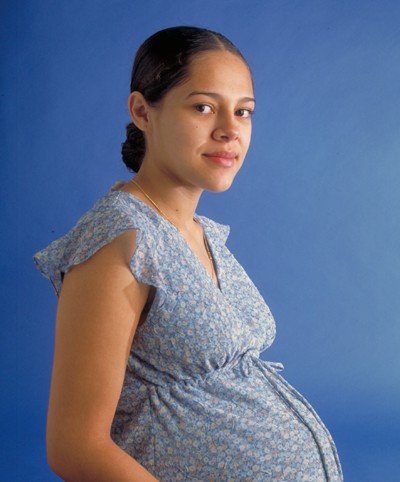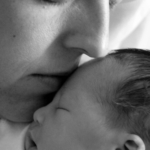In treating pregnant women with mood or anxiety disorders, we tend to focus primarily on the reproductive safety of psychotropic medications; however, it must be recognized that withholding or withdrawing pharmacologic treatment for depression or anxiety during pregnancy may carry some degree of risk. Untreated psychiatric illness in the mother cannot be considered a benign event, and a number of studies have indicated that depression during pregnancy may negatively affect pregnancy outcomes (reviewed in Bonari 2004).
Other studies have focused on the impact of stress on pregnancy outcomes and have demonstrated worse outcomes (e.g., higher risk of preterm birth, lower birth weight) among women who experience higher levels of stress during pregnancy. Fewer studies have assessed the impact of anxiety. While stress and anxiety often co-exist, they are two different entities. Stressors or stressful life events may bring on symptoms of anxiety (or anger or depression), but one may experience significant anxiety (fear or apprehension) in the absence of specific stressors.
In order to better understand the impact of anxiety on pregnancy, Hosseini and colleagues prospectively followed a total of 829 women from the fourth month of gestation until delivery. The women were recruited from an urban, hospital-based practice and were of low socioeconomic status. The State-Trait Personality Index was used as a self-reported measure of trait anxiety at the fourth and seventh months of gestation (representing the first and second trimesters, respectively) and at a third assessment shortly after delivery (representing the third trimester). Birth outcomes were obtained for 763 liveborn singleton babies.
Anxiety symptoms reported at the third trimester predicted shortened gestational age and lower birth weight. When anxiety symptoms during the first and second trimesters were assessed, only severe anxiety was predictive of lower birthweight and gestational age. Women whose anxiety reached severe levels for at least two trimesters were significantly more likely to deliver offspring of lower birthweight and shorter gestation than those women who reported severe anxiety at none or only one of the trimesters. Women who reported chronic, severe anxiety were at the highest risk of having a baby with a shorter gestation and lower birthweight.
These data are consistent with previous studies, which have demonstrated a link between stress during pregnancy and poor pregnancy outcomes, including preterm birth. These findings suggest that anxiety is an important – and relatively common – factor which may affect maternal and fetal well-being. Providing education and other types of interventions, including relaxation techniques, may help to decrease levels of anxiety and may help to improve outcomes.
Ruta Nonacs, MD PhD
Hosseini SM, Biglan MW, Larkby C, Brooks MM, Gorin MB, Day NL. Trait anxiety in pregnant women predicts offspring birth outcomes. Paediatr Perinat Epidemiol. 2009 Nov;23(6):557-66.








Great article!